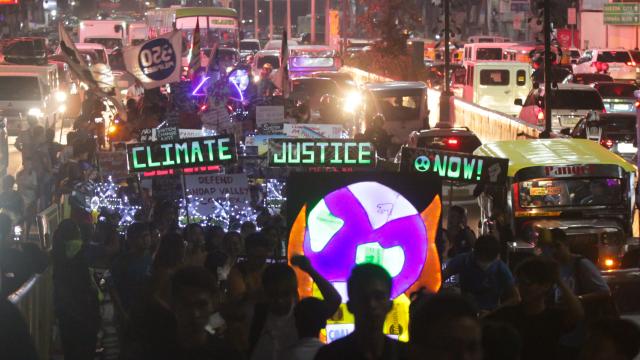These are dangerous times to be an environmental defender. In 2019, a record number of environmental advocates were murdered.
no different with 212 environmental defenders killed. The report authors worry 2020 may wind up being even worse due to the coronavirus pandemic. With governments wrapped up in this health crisis, they may not be worried about protecting the lives of the individuals challenging polluting infrastructure projects.
“Many of the world’s worst environmental and human rights abuses are driven by the exploitation of natural resources and corruption in the global political and economic system,” Rachel Cox, a campaigner at Global Witness, said in a statement. “Land and environmental defenders are the people who take a stand against this.”
These 212 lives lost are likely an underestimate. Many of these deaths go undocumented and unrecorded, especially any that happen in remote Indigenous communities. Like years before, Indigenous people continue to face a disproportionate burden of violence; 33 defenders died in the Amazon region alone in 2019.
Though logging and agriculture make up a large part of the Amazon’s destruction, so does mining. And mining is one industry that poses a severe threat to human rights. According to Global Witness, the mining sector was connected with 50 deaths in 2019. These deaths were largely in Latin America and the Philippines, regions that see painfully high murder rates for environmental defenders.
Killers are rarely held accountable for their crimes. The murder of Honduran Indigenous environmental activist Berta Cáceres in 2016 is one of the few that saw her accused killers arrested and sentenced. That doesn’t usually happen because governments don’t prioritise solving the murders. Even in Cáceres case, lawyers working on the case found that there is “existing proof is conclusive regarding the participation of numerous state agents,” according to a New York Times report. Other reporting from Global Witness shows how governments often act to protect companies’ interests by threatening, beating, or jailing protesters. The goal by both governments and the companies is to keep project opponents silent, allowing companies to go ahead and make their profit no matter the environmental or human rights consequences.
Despite these threats, advocates around the world continue to work toward safeguarding their water, air, and sacred lands. In the face of all this death and heartbreak, environmental defenders even managed to secure some wins last year. The Ecuadorian Waorani people, for instance, were able to keep half a million acres of their land safe from oil drilling in a historic legal victory. In Indonesia, the Dayak Iban Indigenous community finally secured more than 24,000 acres of land after decades of fighting for its ancestral lands. Even here in the U.S., the Standing Rock Sioux Tribe saw court wins related to the controversial Dakota Access Pipeline. That project looks even more uncertain a year later.
Environmental defenders — especially those who are Indigenous — are literally sacrificing their lives for their right to clean air and water. They’re putting their lives on the line to secure protections for generations to come. They risk death every time they speak out against an infrastructure project. That shouldn’t be the case. It is their right to live in healthy, safe communities.
Editor’s Note: Release dates within this article are based in the U.S., but will be updated with local Australian dates as soon as we know more.
